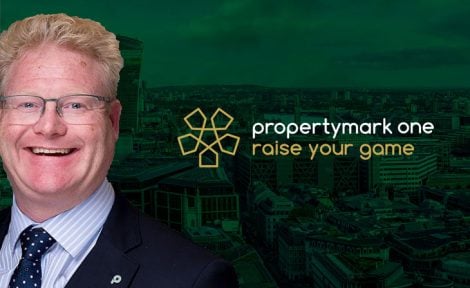Staying the course – how to hold on to staff
Finding new staff in a tight labour market is hard – and keeping them even harder. Richard Reed asks the specialists for some key pointers on staff retention.

You’ve invested time and money recruiting them and getting them up to speed, only for them to jump ship nine months later. So what can you do to keep them on board – or perhaps more accurately, what should you have done to stop them even looking elsewhere? The answer lies in one word: training. Not just the odd ad hoc course to cover AML or other key legislation, but an ongoing programme of training and professional development, tied to a clear career progression pathway.
That is what new entrants are looking for, say recruiters – and if they don’t get it, they either won’t take the job in the first place, or won’t hang around long. Just long enough to pick up some experience for their CV. The younger generation is particularly focused on training and career development, according to the experts we talked to.
They know what they want
 “They know what they want in a job and they push hard to get it,” explains Anthony Hesse, founder of Property Personnel. “A lot of the people we place are young people coming in at entry level, and these are the people who are looking for very clearly defined career paths and the training that goes with that.
“They know what they want in a job and they push hard to get it,” explains Anthony Hesse, founder of Property Personnel. “A lot of the people we place are young people coming in at entry level, and these are the people who are looking for very clearly defined career paths and the training that goes with that.
“They want to know all about how they are going to be trained. They are not looking to stay in the same job forever, and they want to see some sort of evidence when they are going for interviews that the company they are going to join is going to be able to provide this career path, and train them and mentor them and support them – it’s really important to them.” He says that if they don’t get it, they will “vote with their feet”.
You spend a fortune on recruiting and then to let them go in six or nine months because you haven’t given them what they want – you are wasting money.
Anthony Hesse Founder, Property Personnel.
“You spend a fortune on recruiting these people and then to let them go in six or nine months because you haven’t given them what they want – you are wasting money.
“Employers do focus on recruitment and getting that right, but once they have got someone on board they don’t think about the ongoing consequences of keeping them. To me that is equally important. It’s something they expect, not an as an added benefit. They expect to be trained and they expect opportunities to grow and develop within the organisation.”
Trainees need a clear road map
 Lynn Cannell, founder of recruiter LCA, agrees. “For years entry level roles have been called trainees, and they have expected that to mean there is training – which hasn’t necessarily been the case. She believes training programmes on their own are not enough – firms must give new recruits a clear road map of their potential career progression.
Lynn Cannell, founder of recruiter LCA, agrees. “For years entry level roles have been called trainees, and they have expected that to mean there is training – which hasn’t necessarily been the case. She believes training programmes on their own are not enough – firms must give new recruits a clear road map of their potential career progression.
If you are a trainee looking for a serious career, not only are you asking what training you are going to be getting initially, but ongoing investment in you and your development.
Lynn Cannell Founder, LCA.
“If you are a quality trainee looking for a serious career, not only are you asking what training you are going to be getting initially, but ongoing investment in you and your development, and showing you what that would look like in terms of your progression, is where key clients are able to attract and secure staff. The more you invest in them the more you will get that investment back.”
But Cannell warns, “It has to follow on, it has to have that ‘and next, when you reach these levels, you go on to this training and this promotion’, and so forth. The real power to retention is to show that long-term development, and not just the initial induction.
“Ultimately front-line agents are ambitious, they are competitive and they want to progress and develop. It’s not just financial. They are looking at far more than they probably would have done ten years ago when money was the main driver. We need to recognise that they are incentivised by different things, not just the money. They want to know what’s in it for them.”
While the property market is now slowing after two years of relentless growth, Cannell adds that now is not the time to think about cutting back on training. “When the market gets tough you really need the quality.”
Recruits are looking for training
Training providers are equally convinced of the importance of providing what they call a personal development ‘pathway’ when it comes to recruitment and retention.
 “Recruits looking for training more so than ever before,” explains Charlotte Jeffrey- Campbell, co-founder of The Able Agent, who started out as an estate agent and has 40 years’ experience either working or training in the industry. “Employers who can map out a pathway are much more likely to keep staff members than those that don’t. It’s not just financial rewards that help people to stay, it’s about their own personal development – it’s about feeling valued.”
“Recruits looking for training more so than ever before,” explains Charlotte Jeffrey- Campbell, co-founder of The Able Agent, who started out as an estate agent and has 40 years’ experience either working or training in the industry. “Employers who can map out a pathway are much more likely to keep staff members than those that don’t. It’s not just financial rewards that help people to stay, it’s about their own personal development – it’s about feeling valued.”
Employers who can map out a pathway are much more likely to keep staff members than those that don’t. It’s not just financial rewards that help people to stay.
Charlotte Jeffrey-Campbell, The Able Agent.
She emphasises it’s important not to adopt a ‘one size fits all’ approach, however. “It’s understanding what is an individual’s motivation and making sure the training you choose meets that objective.” Historically, people have changed job roles without being supported. “Then they fail, and then they leave,” she warns.
“We understand that, and we also understand that business owners are ridiculously busy and under pressure. We’ve got lots of smaller agents on our books where traditionally the business owner has been the trainer. That’s really difficult if you are busy, and you can also train in bad habits.”
Jeffrey-Campbell says when firms sign up with The Able Agent, a third of staff are totally motivated, work hard, study hard and are driven to succeed, while another third are purely driven by money or job title. The remainder, however, need careful nurturing. “We have a third who are a bit nervous about it, who fear failure and are worried they will be caught out. They have to be really well managed. A lot of people have negative feelings about their time at school so you have to navigate that with training.” She adds that the best agents are those who, rather than being ‘gobby’, are good listeners, and who are empathetic and good at building relationships.
“They are not necessarily those who grasp it the quickest. The one thing we know from The Able Agent is that people have different learning styles. You would be amazed at the number of dyslexic business owners I’ve come across, because they are personality-led.”
The company’s training videos are popular and highly engaging, using humour and animation to make their point, rather than using a dry, academic style. Jeffrey-Campbell says that engagement factor is critical.
Training helps career progression
 Propertymark is perhaps the best-known training provider in the industry. Commercial Manager, Jason Lee points out that ongoing training is vital, not just to give a boost to new recruits but to keep them up to date with all the latest regulatory changes. “At Propertymark we go one step further because they have to continuously do that progression and keep up to date with all the training, which sets them apart from a normal agent,” he says.
Propertymark is perhaps the best-known training provider in the industry. Commercial Manager, Jason Lee points out that ongoing training is vital, not just to give a boost to new recruits but to keep them up to date with all the latest regulatory changes. “At Propertymark we go one step further because they have to continuously do that progression and keep up to date with all the training, which sets them apart from a normal agent,” he says.
We’ve found through our research that those agents that are qualified and have become a member of ARLA or NAEA do find themselves more desirable in that job-hunting market.
Jason Lee Commercial Manager, Propertymark.
“We find through our research that those agents that are qualified and have become a member of ARLA or NAEA do find themselves more desirable in that job-hunting market, because they have proved that they have gone through the process of passing those four exams, they have shown that they have a very good working knowledge and ability within that environment, so it does make them stand out more.”
Lee explains that if an employer helps an employee by putting them through their training it ultimately helps them, as well. “They feel more part of the team, they feel more needed and there is less likelihood they will move on because they are getting all their training, all their wants and needs from that employer where they are; they are assisting them with personal developments.
“Everybody working in any environment wants to feel wanted and needed, and by investing in that person it really does help to keep them because they feel needed.
“We’re hearing from lots of our agents that it is very important for people coming into the industry. In years gone by people fell into it, but now people are looking at it more as a career and want that progression, and the way you do that is through learning and development. Looking after employees is going to be the big thing going forward.”
CASE STUDIES
– THE NEGOTIATOR AWARD WINNERS
Winning companies are great places to work

Employer of the Year at The Negotiator Awards 2022, Silver Award.
 HR Director Hannah Cooper, Leaders Romans Group, explains their recruitment and retention philosophy.
HR Director Hannah Cooper, Leaders Romans Group, explains their recruitment and retention philosophy.
LRG’s Group HR Director Hannah Cooper explains that every new starter who joins the business spends the first week focused on training.
“It’s about giving people induction to the business, training on how you use systems, how you follow the regulations. We cover that in week one because what you do find in the industry is that people get thrown straight into the role, which can be a bit overwhelming at first,” she says.
LRG has a strong internal training team, covering everything from negotiating skills, customer service and governance training to mental health awareness. The firm also has its own leadership academy for management training, which has proved extremely popular.
Cooper says training is absolutely essential for staff retention – but stresses that it must be engaging. “If it’s not, it’s not going to help your attrition, it’s making sure it’s fun as well as taking away really important lessons.”
She adds, “The [younger] generations now want progression, they want opportunities, so we make sure we are giving those opportunities and giving those skills. Have career progression journeys, map out what you need to do to take each step. If someone wanted to go into management we would get them in our leadership academy and they would go through management training leading up to a promotion, rather than after it.”
She says moving up the ladder into management is a big step, and that people need to be properly prepared. “You go from being a member of the team to being a manager – it’s quite a hard journey. It’s about giving people the right tools and advice and skills to take that step. We don’t want anyone not to succeed in that promotion.”
 Three Golds at The Negotiator Awards 2022: Rising Star of the Year, Employer of the Year and Letting Agency of the Year (Medium)
Three Golds at The Negotiator Awards 2022: Rising Star of the Year, Employer of the Year and Letting Agency of the Year (Medium)
 People Operations Director, Laura Courtenay, Miles & Barr, sheds some light on what’s behind that success.
People Operations Director, Laura Courtenay, Miles & Barr, sheds some light on what’s behind that success.
People Operations Director Laura Courtenay says Miles & Barr started its training programme after running a staff-engagement survey a few years ago. The results prompted the firm to bring in personal development plans (PDPs).
“We sit down in January and ask, ‘What do you want to achieve next year, where to you want your career to go, and based on that, what learning and development do you need to achieve?’,” she explains. “Probably the biggest thing is that we have put together a career framework. We’ve basically taken every role within our business and mapped it out.
“If you start as a sales adviser you can see how you can map yourself through to a management role. It’s really visual. For every role in our business there is a description of what that role is, what skills you would need to be able top do that role, and what tech knowledge you would need to have.”
Courtenay says managers can then sit down with members of their team and ask, “Where do you think is next for you?”
“We can then look at that role description and say, ‘Right, this is what you would expect to see in that role, so how do we close those gaps, what learning do you need to get yourself there?’ That has probably had the biggest impact in terms of recruitment.”
She adds, “I can think a couple of cases where we have interviewed really talented individuals and we have been up against some other really good firms, maybe much bigger, and we’ve been able to say, ‘Look, if you came to us this, is our career framework, this is where you’d be coming in, these are all the roles that are available to you. “We map out moving people through their careers – and that really has been the clincher.”
The numbers prove it – the firm has an 88% retention rate, and an attrition rate that has gone down year on year. Laura Courtenay sums it up: “It’s not just been learning, but I think that’s a massive part of it – people feel valued, they feel that we are investing in them.”





